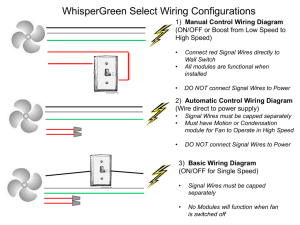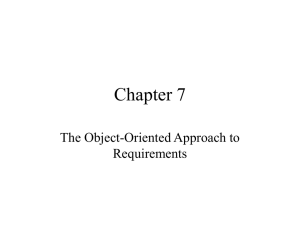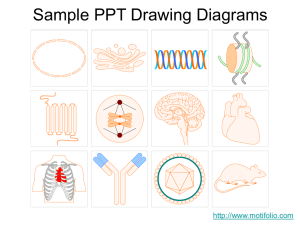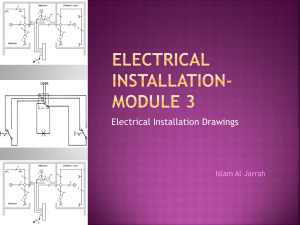Wiring Diagrams Wiring Diagrams Wiring Diagrams Wiring
advertisement
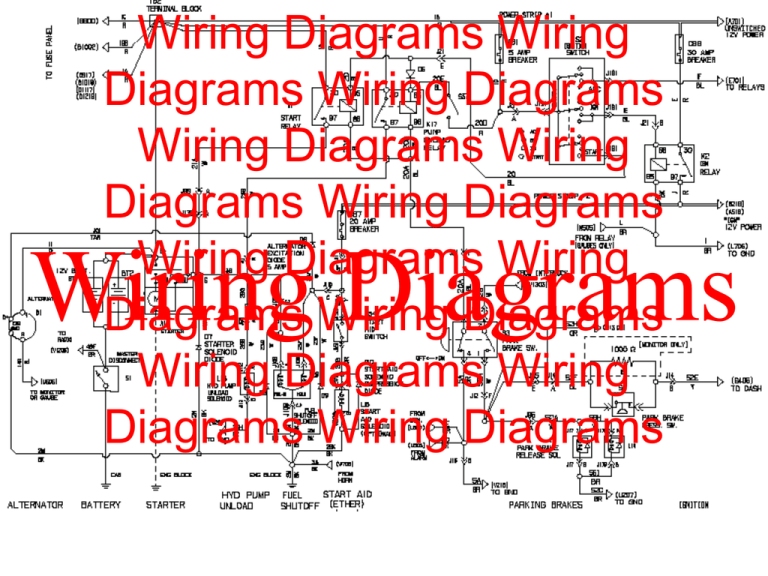
Wiring Diagrams Wiring Diagrams Wiring Diagrams Wiring Diagrams Wiring Diagrams Wiring Diagrams Wiring Diagrams Wiring Diagrams Wiring Diagrams Wiring Diagrams Wiring Diagrams Wiring Diagrams Wiring Diagrams Schematics Wiring Diagrams or Schematics use a symbolic language Understand the symbols and the diagrams will talk to you What it can tell you is how and where to test the system Listen to the Diagram! Wiring Diagrams explain how a circuit works All electrical circuits need Power (positive voltage), conductors, controls, loads. To understand how a circuit works you must trace powerflow through the conductors, controls, and loads. Power at the top! Positive voltage is often called power. Positive voltage usually originates in the top and left side of the diagram. Ground is usually found at the bottom and right side of the diagram. Power (Positive Voltage) Ground (Negative Voltage) How many volts? How many volts? How many volts? Understand the Symbols Wiring diagrams contain lots of information Pay attention to the little details! Wires cross with NO electrical contact Wires cross with soldered splice, will have electrical contact What does this dashed line mean? A dashed (or dotted) line can indicate there are other devices not shown in this picture To keep the diagram simple, the other electrical components are not shown The schematic says a 40 amp fuse is in the fuse/relay box. The fuse should always have power to it. The dotted line means there are other items in this fuse/relay box. The Engine Compartment Fuse/Relay Box has other wires, fuses etc. If I wanted to test the blower fuse I would not be surprised to find other fuses in this box The entire Blower Motor Switch is shown in this schematic To find this switch I would look for a switch with four wires. How many wires go to this relay? How many wires to the stoplight module? More Dashed Lines A dashed or dotted line can mean there is more than is shown on the page….. …..Or there are other wires hooked to the circuit, but not shown in the diagram …..Or what controls a switch. A dashed or dotted line can mean there is more than is shown on the page Dashed box means the entire Turn/Hazard Switch is not shown Terminal Pins A11-A17 are shown but not pins A1-A10 A dashed line can indicate there are other wires common to the circuit, but not shown in the diagram This splice has five wires in common (parallel circuits) This splice has other wires, in parallel, that are not shown in this diagram The dotted line means there are other circuits sharing this ground A dashed line indicates switches are linked Parking lamp and Headlamp switches are “ganged” together as indicated by the dashed line Parking lamp and Headlamp switches are “ganged” together as indicated by the dashed line Parking lamp and Headlamp switches are “ganged” together as indicated by the dashed line Parking lamp and Headlamp switches are “ganged” together as indicated by the dashed line Other switches inside the headlamp switch operate independently Parking lamp and Headlamp switches are “ganged” together as indicated by the dashed line Other switches inside the headlamp switch operate independently When this coil turns ON… …this switch will move This switch is moved by Temperature This switch is moved by Pressure What does this dotted line mean? What does this dotted line mean? What does this dotted line mean? What does this dotted line mean? What does this dotted line mean? What does this dotted line mean? What does this dotted line mean? Details on Switches Draw a continuity block Wire Details Schematics will often indicate… ….wire color ….wire gauge size ….circuit code Wire Color Wire Gauge Circuit Code Wire Gauge Which is the larger wire? AWG 4 12 14 16 18 20 ??????? American Wire Gauge 4! 19.0 3.0 2.0 1.0 0.8 0.5 ?????? 19.0! Metric wire size Not all schematics are the same Some diagrams will leave out detail Color Codes change …. ….B could be Blue ….OR…. ….B could be Black The order of wire coding can also change Circuit Code Not all schematics are the same When you see a new symbol look it up! The better you are at reading diagrams... ...the more mental power you will have… …available to diagnose and fix the problem!!

